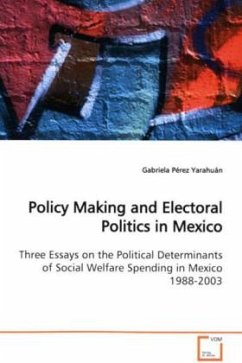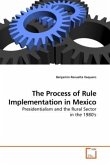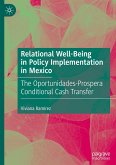This book is the result of a research on the effects
of electoral politics on
the distribution of government outlays for different
social programs in Mexico in the period
between 1988 and 2003. Each of the three essays in
the book
tackle the question of whether social policy during
the years of democratic transition in Mexico resulted
in the change of the political bias in the
distribution of social welfare programs benefits
previously reported in a time of semi-authoritarian
rule. The book shows that some policy instruments for
distribution of federal outlays for social welfare
programs in Mexico are still highly influenced by
electoral politics. Also that timing resources to
elections has been less evident as a political
strategy due to the gradual implementation of a new
scheme of programs or to decentralization. Political
allocation is still highly influenced by partisan
considerations. Former opposition parties have
succeeded in increasing their share of resources as
vote for their party increases. Finally,
decentralization has affected the power balance as
party affiliation of state governors is now relevant
for distribution at the municipal level.
of electoral politics on
the distribution of government outlays for different
social programs in Mexico in the period
between 1988 and 2003. Each of the three essays in
the book
tackle the question of whether social policy during
the years of democratic transition in Mexico resulted
in the change of the political bias in the
distribution of social welfare programs benefits
previously reported in a time of semi-authoritarian
rule. The book shows that some policy instruments for
distribution of federal outlays for social welfare
programs in Mexico are still highly influenced by
electoral politics. Also that timing resources to
elections has been less evident as a political
strategy due to the gradual implementation of a new
scheme of programs or to decentralization. Political
allocation is still highly influenced by partisan
considerations. Former opposition parties have
succeeded in increasing their share of resources as
vote for their party increases. Finally,
decentralization has affected the power balance as
party affiliation of state governors is now relevant
for distribution at the municipal level.








